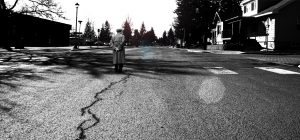 Elder neglect and abuse are a growing concern around the country. As of mid-2014, there were 46.2 million individuals in the U.S. over the age of 65 and by 2060, that number is projected to grow to 98.2 million, according to the U.S. Census Bureau. At that point, almost one in four U.S. residents will be elderly, and 19.7 million of them will be 85 years or older. As our population ages, these individuals become more vulnerable to physical and emotional neglect as well as physical, emotional, and financial abuse. However, there are ways to remain vigilant and prevent seniors from being hurt and taken advantage of. Isolation is one of the consistent signs that elder neglect or abuse is happening.
Elder neglect and abuse are a growing concern around the country. As of mid-2014, there were 46.2 million individuals in the U.S. over the age of 65 and by 2060, that number is projected to grow to 98.2 million, according to the U.S. Census Bureau. At that point, almost one in four U.S. residents will be elderly, and 19.7 million of them will be 85 years or older. As our population ages, these individuals become more vulnerable to physical and emotional neglect as well as physical, emotional, and financial abuse. However, there are ways to remain vigilant and prevent seniors from being hurt and taken advantage of. Isolation is one of the consistent signs that elder neglect or abuse is happening.
Who Can Isolate Your Loved One
Isolation can begin as minor changes in your loved one’s life until it becomes so extreme, your elderly family member or friend has little to no contact with others. This isolation can be caused by a family member, romantic partner, caregiver, or anyone who establishes a relationship of trust with your loved one like neighbors. Workers who your loved one sees consistently over time like bank tellers and grocery store clerks can also become overly involved in your loved one’s life and isolate them for financial gain.
If you notice someone new in your loved one’s life or an unexpected relationship, keep a close watch on your family member or friend’s behavior. If you notice changes, increasing isolation, or other signs of neglect or abuse, you will need to take steps to ensure your loved one is healthy and safe.
Signs of Isolation
Elderly isolation does not suddenly occur one day. It is usually a slow process over time of your loved one having less and less contact with family, friends, and the community. Some signs that an individual is intentionally isolating your loved on include:
- Keeping and controlling your loved one’s cell phone or computer
- Not letting your loved one come to the phone or insisting they end conversations early
- Limiting your loved one’s mobility by refusing to drive them to or from places
- Limiting when you and other family can visit
- Not taking your loved one to previously enjoyed activities within the community
The Consequences of Isolation
The consequences of your loved one’s isolation can be dire. Isolation is generally a sign that some other neglect or abuse is going on. After all, the point of the isolation is so that the controlling individual can act without fear of others discovering their actions. Your loved one could be physically, emotionally, or financially abused by this person. This could lead to serious medical events, mental illness and early death. If the individual is taken advantage of your loved one’s money, then there may not be enough left to cover your family member’s everyday expenses and medical care.
If you notice that you and your family are unable to get into contact or visit your elderly family member, take steps to fight this isolation right away.
How to Fight Your Loved One’s Isolation
If you suspect your loved one’s health or safety is in danger, call the police. An officer can conduct a welfare check and determine whether there are signs of neglect or abuse. If there are any signs of physical injury, the officers can call emergency medical personnel. You can also contact California’s Adult Protective Services. They may be able to advise you on next best steps to protect your elderly family member.
Do You Need Legal Advice?
If it is clear your loved one has been hurt or taken advantage of, contact San Francisco elder abuse attorney at Brod Law Firm. An experienced attorney can advise you elderly family member of their rights to recover compensation for their injuries through a personal injury claim. Call today at (800) 427-7020 to learn more.
(image courtesy of Frantzou Fleurine)
 San Francisco Injury Lawyer Blog
San Francisco Injury Lawyer Blog

